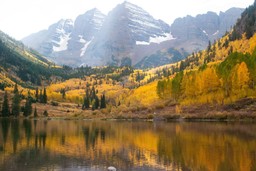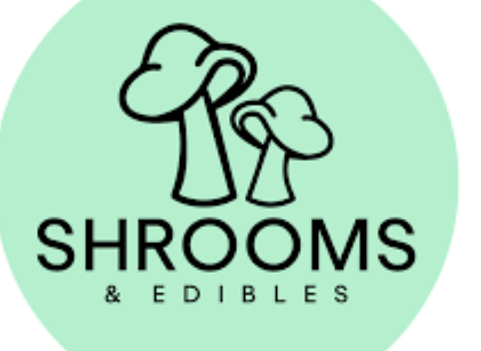How to Get Legal Psychedelics in Colorado
Prop 122 enabled adults to have legal psychedelics in Colorado at certified centers under the care of licensed facilitators.
With the passing of the Natural Medicine Health Act (proposition 122) in 2022, Colorado voters elected to decriminalize personal use of five psychedelic substances. Prop 122 also enabled adults to access psychedelic experiences at certified centers under the care of licensed facilitators. This is the most extensive psychedelic legalization measure to pass in the United States and a historic moment for the state of Colorado.
Now that psychedelics have been officially decriminalized at this state level, many are left wondering how to obtain psychedelics and experience psychedelic medicines legally in Colorado. And with the final rules being debated and determined by an appointed commission, the jury is still out on how the final regulations differ from the spirit of this voter-supported initiative.
Background
Across the United States, Colorado ranks near the bottom of the list regarding mental health and wellness. A number of factors contribute to this sobering fact, among them, a lack of diversity and opportunity in available mental health treatments. Before the election that passed Prop122, treatment using psychedelics was one such unavailable option.
Psychedelics are a class of substances that induce non-ordinary states of consciousness and a perceived expansion of self, and are being studied for their positive effects on a variety of mental health conditions. However, since the 1970s, most of these substances have been federally classified as illegal Schedule 1 substances, which by DEA definition have no medical use and present a high risk of addiction.
There are several reasons that motivate people to approach psychedelics and many different ways to experience the benefits, through intentional use, dose variation, and combining plant and fungi medicines with other consciousness practices, such as meditation, breathwork
and yoga.
One approach involving psychedelic dosage is called microdosing, where a person ingests a sub-perceptual dose of a particular psychedelic medicine to receive the benefits of the substance, without the full-blown psychedelic effects. Previously, access to microdosing was made difficult by the criminalization of psychedelic drugs. These substances have been federally illegal for decades, making obtaining them challenging.
As psychedelics become popularized in the mainstream through media and public discourse and laws begin to shift in areas such as Colorado and Oregon, and internationally in countries such as Costa Rica and Mexico, interest and availability of microdosing products are experiencing exponential growth.
Proposition 122 was designed to “create a framework for regulating the growth, distribution, and sale of such substances to permitted entities”; however, it does not permit the retail sale of psychedelics at dispensaries as common with cannabis products. The proposition
Oregon passed a similar ballot in 2020, making it the first state to legalize psilocybin. The ballot measure in neighboring Oregon allowed the manufacture, sale, and administration of psilocybin in certified centers. The passing of Proposition 122 made psychedelics similarly accessible to Colorado residents.
Proposition 122
When this ballot measure passed in Colorado in November 2022, it legalized natural psychedelic medicines statewide (with caveats). Previously, Denver became the first city in the United States to decriminalize one psychedelic, psilocybin, with the passing of a 2019 proposal. Now, five natural psychedelic substances are decriminalized throughout the entire state, effectively removing criminal penalties for personal use, growing, and sharing. Psychedelic mushrooms will be available at licensed facilities beginning in 2024. Depending on recommendations from the Natural Medicine Advisory Board, a governing body appointed by Colorado’s Governor, the program may include N-N dimethyltryptamine (active substance in ayahuasca), mescaline, and ibogaine by 2026.
Proposition 122 also decriminalized the growth, possession, transport, and personal use for adults over the age of 21 for the following five psychoactive plants and fungi.
- Psilocin
- Psilocybin
- Dimethyltryptamine (DMT)
- Ibogaine
- Mescaline
Proposition 122 stated that individuals with past convictions involving the now-legalized substances will have their criminal records sealed. As a result, these past offenses will no longer appear on public records.
It’s important to note that state programs which are primarily responsible for researching the positive effects of psychedelics that effectively advocate for their legalization with the DEA, are exempt from the initiatives of Prop 122. Since these initiatives are federally regulated, these programs could jeopardize their DEA research licenses if they allow the purchasing or consumption of psychedelics under Prop 122. Psilocybin is still a Schedule 1, federally-controlled substance, and that presents additional layers of legal ambiguity to the greater issue of legal accessibility. Finally, no measure for retail sales by dispensaries is included in the ballot proposition, unlike the path of cannabis legalization.
How to Get Legal Psychedelics in Colorado
The first way people can access psychedelics – only magic mushrooms starting in 2024 – is through a licensed healing center. By definition, the healing center can sell and administer the substances while a person is at the facility. Through an appointment, people can take psychedelics while in a supervised setting. The healing centers cannot sell the psychedelic substance for personal use outside the center; they can only provide services in-house. Currently, counties and cities within the State of Colorado cannot opt-out as many counties did in Oregon in 2022. Still, they will be able to set policies and rules about where healing centers can open and dictate their hours of operation.
Colorado residents age 21 or older can also grow, possess, and share these specific psychedelic substances for personal use. The Proposition also forbids the sale of psychedelic substances for personal or commercial use. Citizens don’t need a doctor’s approval to grow or take their own psychedelic plants and fungi. Essentially, this means that any adult over the age of 21 can grow mushrooms containing psilocybin or psilocin, possess them, and benefit from their personal use. It is important to note that psychedelics are complex molecules that have myriad safety considerations and it’s a wise practice to learn about Harm Reduction, whether you have experience with psychedelics, or if you’re new to them.

How people first obtain psychedelic medicines in Colorado can vary. Magic mushrooms are naturally occurring fungi and easy to grow at home. An adult over the age of 21 who possesses them could legally share or gift, but not sell, them with another adult. Traditionally, those wanting to take psychedelics have had to procure them through networking or asking around, as they were illegal in nearly all of the United States.
Psychedelics may also be sold on the underground market, an unauthorized distribution channel outside the distributor’s regular market. However, it is still illegal to sell and buy psychedelics, and there is no way to verify the dose or contents of the substance you purchase. Other countries, such as Jamaica, offer psychedelic experiences in the form of legal psilocybin retreats. There, the substance is administered by a facilitator at the retreat and cannot be bought or sold for patrons to take home.
Alternatively, you can find three types of potent psilocybin-containing mushrooms that grow naturally in the United States Pacific Northwest: Psilocybe cyanescens, Psilocybe allenii, and Psilocybe ovoideocysidiata. These fungi could presumably be sourced from nature and grown in a person’s home or in their backyard – with well over 100 strains of psilocybin-containing mushrooms out there in the wild, it’s fun to learn more about the fascinating world of fungi, while educating yourself on the world of natural medicines and their many benefits.

